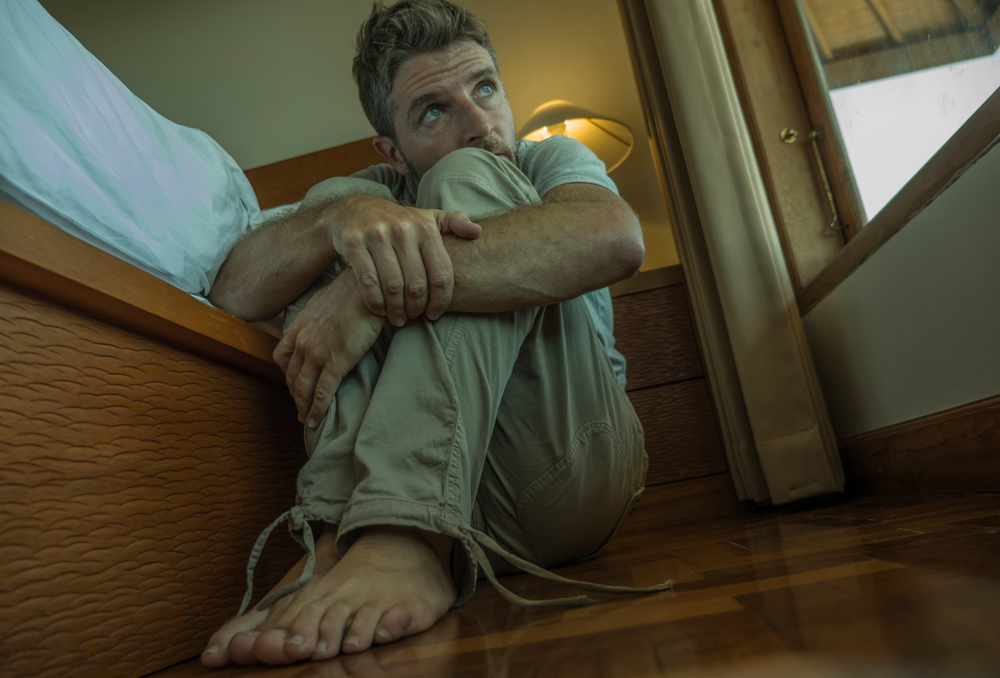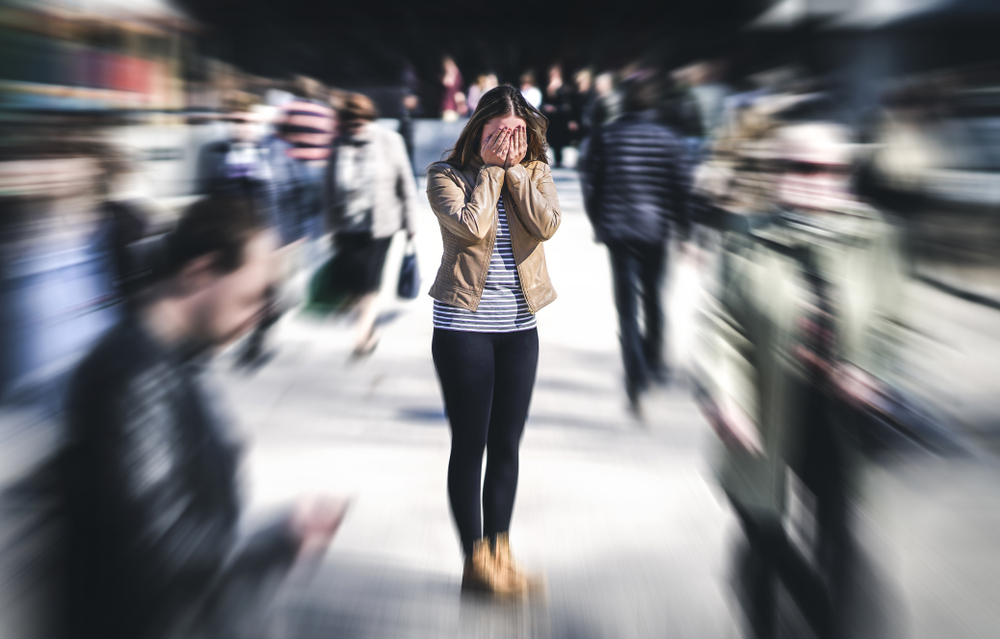Last Updated:
July 21st, 2025
Paranoia and Fear Caused by Addiction
When you are deep in addiction, it’s hard to know what’s real anymore. One of the most disturbing things that can happen is paranoia, a creeping fear that people are watching you, talking about you or planning something behind your back. It is important to understand that it’s not your fault and you’re not losing your mind. Paranoia is a common symptom of drug and alcohol addiction, and understanding why it happens is the first step in feeling safe in your own head again.

What is paranoia?
Paranoia is a strong, often overwhelming belief that people are out to harm you, judge you or betray you, even when there’s no real evidence that it’s true. It can make you feel unsafe around others, even people you trust and can cause you to read into every look, word and silence.
Sometimes paranoia comes and goes but other times, it lingers in the background like a low, constant hum of suspicion. You may find yourself replaying conversations over and over, second-guessing people’s motives or pulling away from your friends and family out of fear.
It is common to feel stuck in a loop of questions that fuel paranoia, such as:
- Why are they acting weird?
- Did I do something wrong?
- Does everyone hate me?
This kind of thinking can make it really hard to trust others and sometimes, even yourself.
Paranoia can be a response to many things, such as stress, isolation, trauma or major emotional strain. It is also a common mental health symptom of various conditions, including alcohol and drug addiction. Whatever the cause, the experience is real and can make the world a frightening place.
How does addiction induce paranoia?
Paranoia is one of the most frightening psychological effects of addiction, not just for the person experiencing it but for those around them, too. For some people, it can even be a gateway to psychosis, a complete break from reality that can be temporary or, in some cases, long-lasting.
When drugs or alcohol interfere with your brain chemistry, especially in high doses or frequent use, they can cause your mind to spiral into mistrust, fear and distorted beliefs. Paranoia about drugs like cocaine and methamphetamine often occurs due to dopamine surges. This energises you and is alert, but if you push it too far, your brain goes into overdrive. This leads to misread intentions, distorted thinking and extreme suspicion. People addicted to meth, for instance, often develop full-blown drug-induced psychosis with hallucinations, delusions and even aggressive outbursts at imagined threats.
Cannabis paranoia is also well documented. In some users, especially those who are already anxious or use high-THC strains, cannabis can bring on overwhelming fear, confusion or the belief that others are staring, laughing or talking about them. As with meth, long-term cannabis use can turn that into a lasting mental state, especially for people who are already vulnerable to anxiety or psychosis.
Alcohol paranoia tends to emerge after blackouts, where people feel confused, disoriented and paranoid about what happened while they were drinking. It is also common during withdrawal, causing symptoms like mood swings and gaps in awareness that can lead to false beliefs about what’s happened while you were “out of it”. This can then lead to aggression, especially where there is already tension or conflict among family or friends.
What are the common symptoms of paranoia to look out for?
Paranoia often hides in smaller behaviours that slowly take over someone’s life. If you are struggling with paranoia and think it may be linked to addiction, here are some of the signs to look out for:
How can paranoia become dangerous if left unaddressed?
When paranoia is linked to addiction, ignoring it can be incredibly dangerous, not only for you but for everyone else you come into contact with.
If left untreated, paranoia can spiral into full psychosis. The fear then becomes so convincing that it detaches you from all reality. You may act out against people you think are spying, plotting or threatening you, even if they are close friends or family. Violence is a real risk, especially when paranoia is fuelled by stimulant drugs or alcohol withdrawal.
There is also the emotional toll that paranoia takes. Someone who feels constantly threatened may push everyone away, losing relationships, jobs and opportunities. You may stop seeking help altogether because you believe no one can be trusted, and in that state, relapse, accidents and overdose all become more likely.
Remember that paranoia is more than a mental health symptom; it’s a flashing warning light that things could be heading for a much more serious crisis. If your paranoia is being caused by addiction, you should seek professional rehab treatment to avoid these potentially dangerous consequences.

Our compassionate team are ready and available to take your call, and guide you towards lasting the lasting addiction recovery you deserve.
What should I do if I or a loved one is experiencing addiction-induced paranoia?
If paranoia is affecting your thoughts, your relationships or your recovery, you don’t have to struggle by yourself. Whether it’s linked to substance use, withdrawal or something deeper, Addiction Helper can help you feel safe in your own mind again. Contact us today to speak to our addiction specialists. We will listen without judgment and help you take the next step toward clarity and peace.
Our compassionate team are ready and available to take your call, and guide you towards lasting the lasting addiction recovery you deserve.

